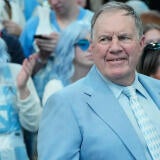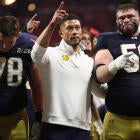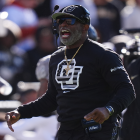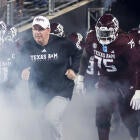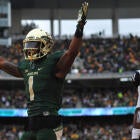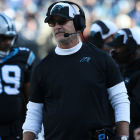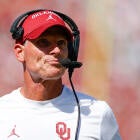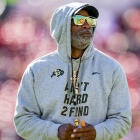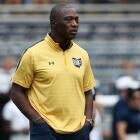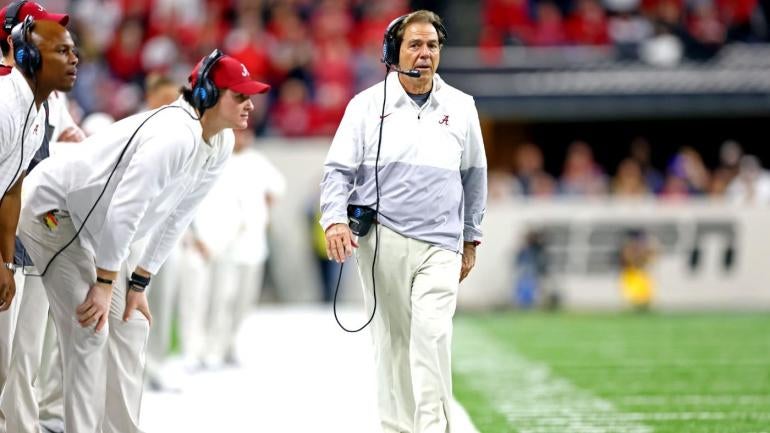
Alabama coach Nick Saban has been one of the loudest voices in the push for name, image and likeness reform even though the ability for student-athletes to profit off of their visibility has only been in existence for 11 months. He has been an advocate for streamlining a process that is heavily governed by individual state laws, that he got into a war of words with Texas A&M coach Jimbo Fisher earlier this month saying that Texas A&M "bought" its 2022 recruiting class -- the best class in 247Sports history.
Saban was asked about that little dust-up Tuesday at the SEC spring meetings in Destin, Florida, and further apologized for mentioning Texas A&M by name.
"I didn't really say that anybody did anything wrong," Saban said. "I didn't say anybody did anything wrong, OK, and I've said everything I'm gonna say about this. I should have never mentioned any individual institutions, and I said that before."
Fisher followed at the podium on Wednesday and declined to answer any questions about the public altercation with Saban. Fisher said that he and Saban spoke briefly at the beginning of the meeting, but strictly talked business.
"It's over with," said Fisher. "We're done talking about it. We're moving onto the future and trying to fix what needs to be done in college football. We have a lot more pressing needs than our argument."
It's the second time that Saban has apologized since Fisher's 10-minute rant in which, among other things, he called Saban a narcissist.
"We never bought anybody," Fisher said earlier this month. "No rules were broken, nothing was done wrong. These families, it's despicable that a reputable head coach can come out and say this when he doesn't get his way or things don't go his way. The narcissist in him doesn't allow those things to happen. It's ridiculous."
The war of words might have seemed a little childish, but it cemented the idea that guardrails have to be put up in order to make NIL work the way that it is intended. In a roundabout way, Saban and Fisher's squabble shed even more light on the chaos that was created by the absence of uniform regulations across the board.
With that said, several coaches in Destin, including Saban, Florida's Billy Napier and Georgia's Kirby Smart, reiterated that they are all for players profiting off of their athletic prowess.
"We need some kind of transparency in name, image and likeness deals to verify that players are doing what they need to do to have the opportunity to make money in name, image and likeness," Saban said. "And believe me, I'm all for players making as much as they can make, OK. But I also think that we've got to have some uniform, transparent way to do that. Our players did extremely well last year in name, image and likeness because they got agents, they had representation, they had people who wanted them to actually endorse something for them, and they did very, very well. That's public record, and you can see how well they did."
The NIL era has also given more voices to people surrounding high school and college athletes. Parents and high school coaches have always been prominent, but now agents, marketing firms and handlers have more seats at the table.
"Student-athletes need some protection from unfair name, image and likeness representation or deals," Saban said. "You could have a player -- and we've had this happen to us in the past -- that thinks he's signing one thing and he signs something else and gives up his freedom of choice in the future as to who represents him. We have no oversight right now for players when it comes to this."
It's clear that coaches are upset with how NIL was rolled out, and they're not afraid to push for change. It'll be interesting to see how this is addressed moving forward. SEC commissioner Greg Sankey and Pac-12 commissioner George Kliavkoff went to Washington, D.C., earlier this month to push the federal government to take action, which might be where this ends up if the power brokers in college athletics can't come together on the issue.
![[object Object] Logo](https://sportshub.cbsistatic.com/i/2020/04/22/e9ceb731-8b3f-4c60-98fe-090ab66a2997/screen-shot-2020-04-22-at-11-04-56-am.png)





